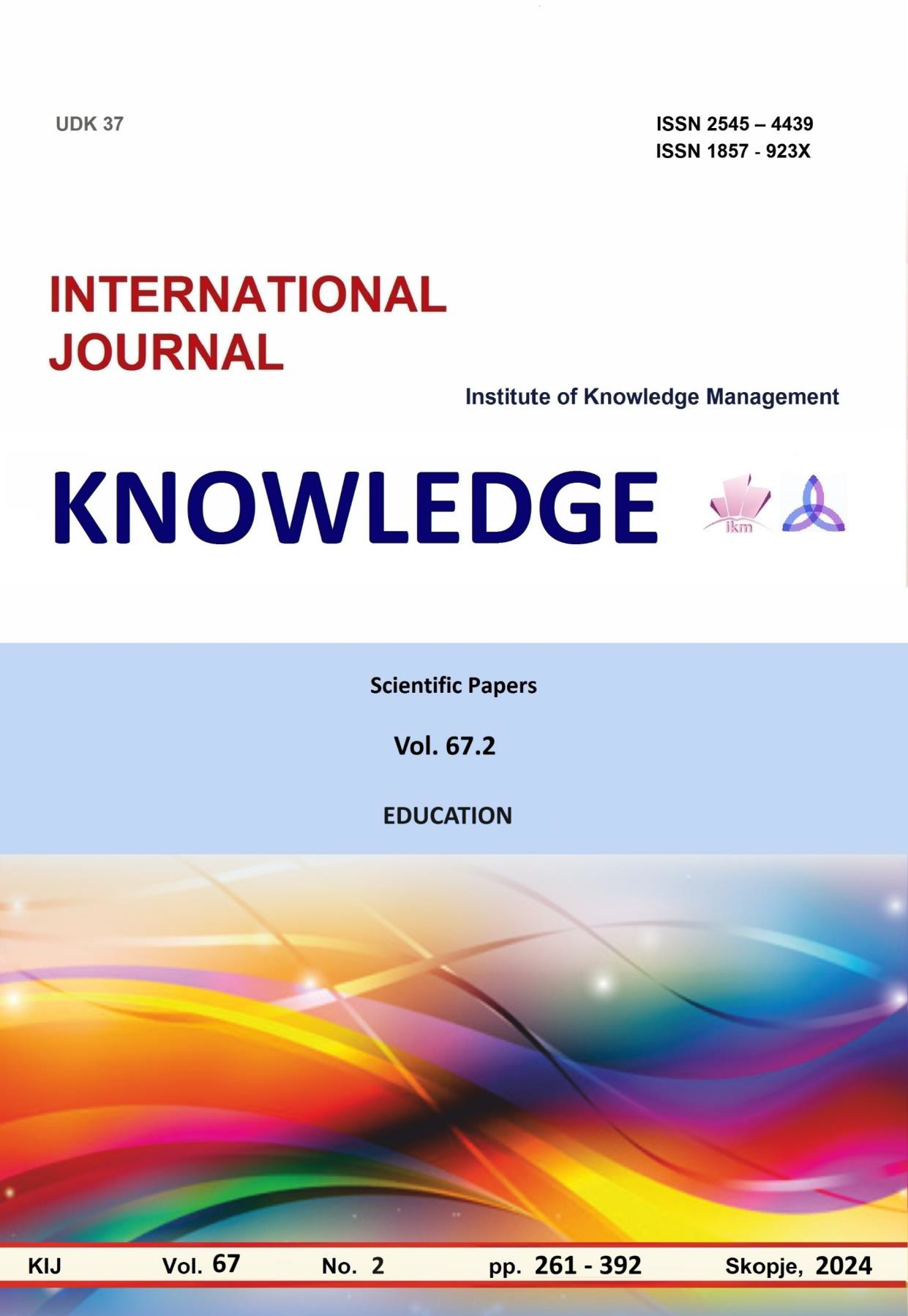ИЗПОЛЗВАНЕ НА ДИГИТАЛНИ ОБРАЗОВАТЕЛНИ РЕСУРСИ ЗА РАЗВИТИЕ НА ФУНКЦИОНАЛНА ГРАМОТНОСТ И ФОРМИРАНЕ НА УМЕНИЯ ЗА УСТОЙЧИВО РАЗВИТИЕ У ДЕЦАТА В ПЪРВИ КЛАС
USE OF DIGITAL EDUCATIONAL RESOURCES FOR THE DEVELOPMENT OF FUNCTIONAL LITERACY AND THE FORMATION OF SKILLS FOR SUSTAINABLE DEVELOPMENT IN CHILDREN IN FIRST GRADE
Author(s): Dimona YanevaSubject(s): Social Sciences, Education
Published by: Scientific Institute of Management and Knowledge
Keywords: functional literacy;sustainable development;primary school;play;digital technologies
Summary/Abstract: The article discusses the possibilities for using digital educational resources for the development of functional literacy and for the formation of skills for sustainable development in children in the first grade. The main goal is to present how digital interactive resources, such as educational games and digital platforms, can support students in the formation of important skills for reading, problem-solving, teamwork and awareness of environmental issues from an early age. The concepts of functional literacy and sustainable development and their significance for modern education are considered. Emphasis is placed on the need to use innovative interactive methods to develop critical thinking and social skills in primary school students. The article analyzes the impact of various digital tools on the development of young students, focusing on their contribution to the formation of functional literacy, as well as to the formation of skills for sustainable development. It presents how digital resources can be adapted and personalized to the individual needs of each child. In the first grade, children enter with different levels of preparation and motivation, so the flexibility of digital tools allows teachers to offer materials that correspond to the individual needs of each student. Emphasis is also placed on the integration of digital resources through which students' critical thinking and cognitive skills are developed, as these abilities are fundamental for the further development and formation of personality. For example, interactive games and case scenarios encourage children to analyze situations, make choices, and reflect on the consequences of their actions. This prepares them to think about sustainable development not only as a theoretical concept, but also as a practice in everyday life. The author focuses on the importance of play as a method of learning. Research shows that play not only engages children's attention, but is also a powerful tool for developing social and cognitive skills. In this context, it looks at how gamified educational apps and games with sustainable development themes allow children to learn while having fun. They can simulate different situations, such as how to sort waste or what the consequences of pollution are, allowing them to better understand the meaning of their actions in the real world. The article also emphasizes the need to develop appropriate digital resources in Bulgarian, consistent with the curriculum. Examples of multimedia lessons and interactive materials are given, through which young students get acquainted with nature and environmental problems. Digital educational resources offer significant opportunities for the development of key skills in young students. Through them, teachers can apply diverse and flexible teaching methods that not only engage children, but also prepare them for the challenges of the modern world. The use of interactive games and simulations for sustainable development allows them to realize their role and responsibility towards the environment from an early age. This approach to education not only enriches the learning process, but also encourages children's curiosity, social engagement and desire for positive change in the world around them.
Journal: Knowledge - International Journal
- Issue Year: 67/2024
- Issue No: 2
- Page Range: 311-316
- Page Count: 6
- Language: Bulgarian

